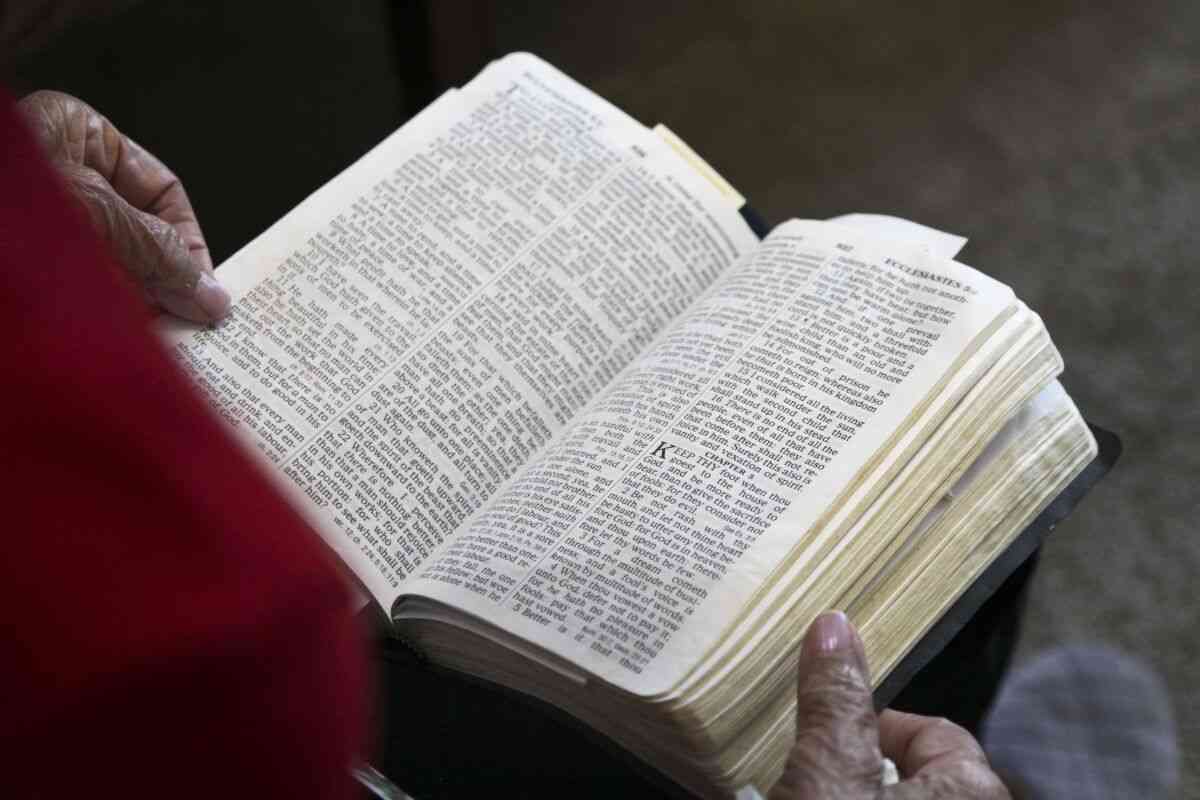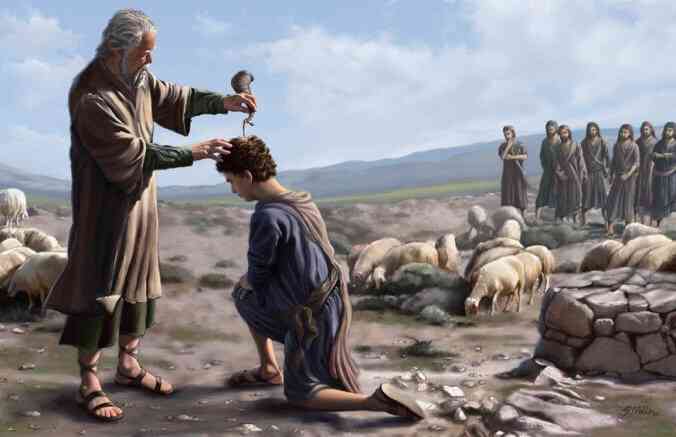
Pharisees were religious zealots who were very legalistic in nature. They would often expound the Scriptures in the synagogues and pray before people.
They appeared very pious and in people’s eyes, it didn’t seem like they did anything that violated Scripture. They were considered to be “very holy and righteous”.
However, in reality they were very stubborn, arrogant and hypocritical in their behaviour. Jesus exposed and rebuked them because of their hypocrisy.
We see one such confrontation in Matthew 15:3-9, where Jesus gave these Pharisees an unequivocal rebuke because of their hypocritical behaviour.
‘But woe to you scribes and Pharisees, hypocrites! For you shut up the kingdom of heaven against men; for you neither go in yourselves, neither suffer you them that are entering to go in. Woe to you scribes and Pharisees, hypocrites! For you devour widows’ houses, and for a pretense make long prayer; therefore, you shall receive the greater damnation. Woe to you scribes and Pharisees, hypocrites! "
One of the characteristics of the Pharisees in Jesus’ day was their obsession with pointing out the sins of people and their lack of holiness. The woman caught in adultery or the prostitute who washed the feet of Jesus of examples where the Pharisees exposed the sins of these people and desired they be dealt with harshly.
How did Jesus respond? He didn’t condemn them nor did He threaten them with God’s wrath or punishment. He forgave both women and set them free from their accusers while empowering them through forgiveness to love God and leave their sin behind them. The Pharisees couldn’t understand how extending mercy to such vile, wicked sinners could possibly change their life, much less their behaviour.
The Pharisees in Jesus’s day are no different to modern day Pharisees who are quick to point out people’s sin and demand they live disciplined and holy lives.
- Ordinary citizens or foreign capital? July Moyo must choose
- Grace tidings: Relax it is a done deal
- Grace tidings: Relax it is a done deal
- Unpacking Christ; our wisdom (2)
Keep Reading
What did Jesus know about showing sinners mercy that the Pharisees didn’t? Jesus challenges the Pharisees and says “But go you and learn what this means, I will have mercy, and not sacrifice: for I have not come to call the righteous, but sinners to repentance.” Matthew 9:13
One interesting fact about the Pharisees is to be one you had to memorise the Torah which are the first five books of the Bible written by Moses.
They also were required to be well read and knowledgeable about all the other books as well. The challenge Jesus is giving them is designed to show them they were focusing on keeping laws, rules etc. yet they missed an even more important subject that brought into focus the reason behind those rules and laws. When Jesus asked them to figure out what “this means” He was quoting a passage of scripture they should have known.
“For I desired mercy, and not sacrifice; and the knowledge of God more than burnt offerings” (Hosea 6:6). If they had taken the time to study passages that revealed God’s heart and intentions toward man, they might have had a better grasp on why Jesus saw mercy as a powerful tool in turning sinners to God and away from sin.
What Jesus was saying is if the Pharisees knew God and understood what really mattered to God, they would not put such overemphasis on rules or such things as ritual cleanliness and restrictive Sabbath observance and sacrifices for sin.
This wouldn’t be the first time Jesus tried to correct and help the Pharisees refocus on what was important to God. Jesus rebuked them in Luke 11:42, “But woe to you, Pharisees! for you tithe mint and rue and all manner of herbs, and pass over judgment and the love of God: these ought you to have done, and not to leave the other undone.”
The Pharisees believed that God accepts and blesses a person based on their personal holiness. Jesus knew His father loved people and didn’t need “their” sacrifices to earn His favour or love. Thus when one connects to God in their heart by knowing and experiencing His mercy for them, His mercy has the ability to transform them and their desires.
“Love, mercy and truth purge the heart of sin, Proverbs 16:6
God’s love reveals His mercy to people and the “truth” is God is a good God. When people know and walk in the reality of God’s love and mercy for them that is the “truth” that Jesus said would set people free.
“....and you will know the truth, and the truth will set you free.” John 8:32.
The coming of Christ, His death, burial and resurrection was the end of legalism and yet today we still find some of us who are very legalistic. None of us is able to keep all the laws and James reminds us that if you break one law you have broken all of them (James 2:10). It is only Christ who fulfilled all the laws. We are not saved by observing the law or our works but by grace of God.
Jesus constantly pointed out that legalism is void of compassion and mercy. In the story of the Good Samaritan, neither the Priest nor the Levite offered the man who was half dead any help or comfort at all.
In the story of the Prodigal Son, one inescapable truth Jesus reveals is that legalism is incapable of showing mercy or compassion. The critical elder brother wanted to see his brother rejected and punished for his sins. That is why he told their father all his brothers' sins. He believed that once their father discovered how the prodigal had wasted his inheritance, he would be angry and reject the prodigal and banish him from his presence. The elder brother’s view of his father was that he was harsh and demanding, not easily pleased.
What the elder brother did not know was that the prodigal son had beaten him to the punch and confessed all his sins to his father and discovered unconditional love and forgiveness in his father’s heart. The elder brother was clueless to what his father’s heart was full of.
One of the type and shadows we see in this story is the elder brother symbolises the Pharisees who were critical of how Jesus treated and accepted sinners.
The prodigal son represents those sinners and tax collectors Jesus was sitting with as He told the story. No one understood God’s heart like Jesus did. The Pharisees believed that God was angry and hated sinners because they had broken God’s laws. Jesus knew and taught that God loved His enemies and His goal was to turn sinners to God through helping people experience God’s mercy for them. (Matthew 9:13).
This is why Jesus told the story about the prodigal son to illustrate it was the father showing mercy to his son that restored their relationship. The elder brother wasn’t interested in seeing the prodigal son and his father back together again because in his understanding that type of relationship is earned and worked for as he was attempting to do. He was deeply offended that his party and prostitute loving brother was now being loved and forgiven unconditionally by their father.
What he could not see because he was blinded by this truth is what his father’s heart was full of for both of them.
The Pharisaical elder brother believed he had to “work” for his father’s love and the sin-ravaged prodigal son believed his sins disqualified him from his father’s love. Both sons were clueless as to how their father really felt about them and the type of relationship he deeply desired to have with them.
It was only the prodigal son who experienced his father’s love for him when he allowed his father to show him how much he loved him. The elder brother rejected his father’s love because he believed it had to be earned. This is the deception of legalism it makes you believe that you must work for what God offers you freely.
The problem is, you can never receive what God offers you freely if you are working for it. This is the reason the elder brother did not come to the party for his younger brother. Legalism makes one feel “entitled” whereas unconditional love causes one to be grateful.
Dr Doug Mamvura is a graduate of Charis Bible School. Feedback: dr[email protected] or Twitter @dougmamvura











